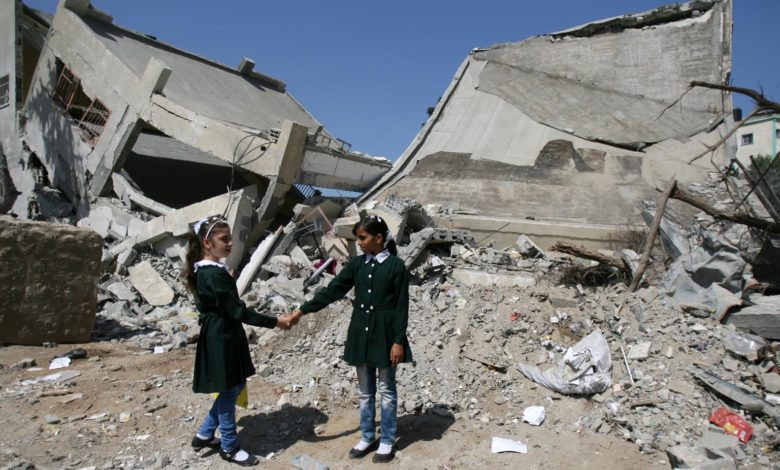Insecurity Blocking Access To Schools, Healthcare In DR Congo

Eight health areas in the South Congo territory of Nyunzu have stopped functioning since January 2020, while five others in the north covering a population of more than 43,840 have not functioned since July, 2017.
According to the United Nations Office for the Coordination of Humanitarian Affairs (OCHA), several schools in the areas have been destroyed because of insecurity that has been ravaging the Tanganyika Province of the Democratic Republic of Congo.
“Armed groups have attacked many health structures in the territory rendering them non-functional. In these health areas, normal mass vaccination campaigns have not been carried out for some years in the north.
“This situation exposes numerous children to childhood illnesses which are avoidable, such as measles and yellow fever.
“Six health centres supported by humanitarian partners have been sacked between January and March, 2020. Because of violence targeting health infrastructure, some health personal have fled from the zone.
” In the territory of Nyunzu, the destruction of 69 schools constituting 46 per cent of all schools in the area, has deprived 16,000 children of their right to education. And too, some 10 schools are still being occupied by armed men in the north of this territory,” an OCHA communiqué revealed.
Two million dollars from humanitarian partners has been approved by the OCHA for assistance to the vulnerable populations of the affected territory.
“Several humanitarian organisations have been giving multi-sectoral assistance in Nyunzu. All the same, this assistance is not enough to cover all the needs, due to the acuity and extent of the humanitarian needs of over 70,600 targeted persons who include displaced persons who recently returned and host families.
“To contribute to the humanitarian needs of these populations, the Humanitarian Coordinator in the DR Congo in September approved a two-million dollar allocation for active partners in the Nyunzu territory. These funds would serve the humanitarian needs of the most vulnerable persons. The priority sectors identified are nutrition, water-hygiene-sanitation as well as essential household articles and shelter,” the OCHA communiqué added.
According to the UN agency, government authorities envisage, within the coming weeks, to organise a forum geared at encouraging dialogue to find solutions to the profound causes of poverty, violence and conflict which have been ravaging the province of Tantayika including the Nyunzu territory.
Support Our Journalism
There are millions of ordinary people affected by conflict in Africa whose stories are missing in the mainstream media. HumAngle is determined to tell those challenging and under-reported stories, hoping that the people impacted by these conflicts will find the safety and security they deserve.
To ensure that we continue to provide public service coverage, we have a small favour to ask you. We want you to be part of our journalistic endeavour by contributing a token to us.
Your donation will further promote a robust, free, and independent media.
Donate Here




